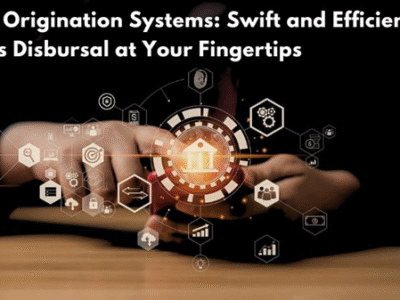Every dollar counts when running a business—especially at tax time. Knowing which expenses are tax deductible for small business owners and sole traders alike can make a big difference to cash flow.
As a broker, explaining this clearly can bring significant savings to your client’s business and improve their trust in you.
The proper deductions can reduce taxable income, improve end-of-year positioning, and help businesses prepare for future growth.
But which expenses actually qualify, and what do your clients need to know to claim them correctly?
Let’s break down what the Australian Taxation Office (ATO) accepts as tax-deductible expenses—and how brokers can help clients get EOFY-ready.
EOFY And Tax Deductions
The end of the financial year (EOFY) is an opportunity for a business to grow into the next financial year.
It’s when businesses across Australia take stock of their finances, reconcile their books, and look for ways to reduce taxable income through legitimate deductions.
This is where you, as a broker, can provide support.
Understanding which expenses can be claimed—and encouraging your clients to get their records in order before 30 June—can help them make the most of the deductions available.
From software to superannuation, knowing what’s tax deductible can put thousands of dollars back into the business.
According to the ATO’s guidelines on business deductions, deductible expenses must be directly related to earning assessable income. They also require solid documentation to back up the claim.
A List Of Notable Tax-Deductible Business Expenses
Not every cost a business incurs is tax deductible. But many everyday operational expenses are, provided they’re tied to business activity.
Below are some of the most common deductions your clients may be eligible to claim and guidelines for ensuring they’re deductible.
Related Product And Service Purchases
Any goods or services a business purchases specifically to deliver its offerings may be claimed as tax-deductible. This includes stock for resale, raw materials, outsourced packaging, and fulfilment services.
For example, those costs may potentially qualify if a client buys items to resell on an e-commerce site or uses couriers to deliver client orders.
If there’s a personal component to the purchase, businesses must only assign the business part of the expense accordingly. For instance, only the business-use portion of a company car is deductible.
Day-To-Day Operating Expenses
Running a business involves plenty of ongoing costs. Fortunately, many of these everyday expenses can be claimed at tax time.
Consider encouraging your clients to keep detailed records and receipts to support their deductions in this category.
Office Supplies And Consumables
These include printer paper, pens, envelopes, cleaning products, and postage. More recently, cloud-based software subscriptions—like Canva, Xero, or Google Workspace—are also deductible if used for business purposes.
Sole traders can also look into what they can claim based on Hnry’s expense guide for sole traders, which provides clarity around mixed-use purchases and more minor recurring charges from an accountant’s perspective.
Premises Costs
Lease payments are deductible if your client rents a business space. Other claimable costs include security, cleaning, pest control, and minor repairs.
Home-based businesses may deduct a percentage of rent or mortgage interest, but only if they use a dedicated space for work. You can’t deduct the portion of the home used for living/personal use.
The ATO has strict guidelines for claiming home office deductions, so brokers can consider advising clients to calculate square metre usage accurately and keep utility records.
Business Utilities
Electricity, internet, mobile data, and water used for business activities can be claimed. However, like many mixed-use expenses, only the business-use portion of these bills is deductible.
Clients should be advised to estimate usage honestly and keep billing statements and other documents as evidence for business use.
Asset Depreciation
Large assets—like computers, tools, and vehicles—can be claimed over time through depreciation.
Alternatively, eligible businesses can take advantage of the $20,000 instant asset write-off, allowing them to deduct the full cost of the asset in the same year it was purchased and installed by 30 June.
Brokers can advise clients to consider purchasing necessary assets before EOFY so that they can claim them in the current financial year. Details on depreciation rules are available on the ATO’s business deductions page.
Employee Training
Upskilling your team can come with benefits at tax time. Expenses for seminars, conferences, workshops, or online courses related to your business are generally deductible.
According to the ATO’s education and training deductions, training must be closely connected to current work activities, not future jobs or unrelated careers.
For example, an advertising agency can claim deductions for employee training in graphic design or marketing courses online, but it can’t claim deductions for cooking classes.
Employee Super
Super contributions are only tax-deductible when they’re paid on time. This includes the Super Guarantee (currently 11%) and any additional voluntary payments.
If you miss a due date, your client could lose the deduction entirely, plus face late payment penalties. This is a valuable reminder for brokers to prompt clients to prepay their super contributions long before EOFY.
It’s strongly advised to start the process more than a month before 30 June to provide leeway for unseen delays and so that you’re not too stressed out when the deadline is near.
Tax, Legal And Accounting Services
Fees paid to registered tax agents, accountants, and legal advisors can be claimed. This also includes bookkeeping and BAS preparation services.
If you refer clients to trusted professionals like tax agents and accountants during tax time, you can remind them that those fees can offset their tax bills.
Travel and Vehicle Expenses
Travel for business purposes—including flights, fuel, hotel stays, and rideshare fares—can be deductible. If your client uses a vehicle for work, they’ll need a logbook or cents-per-kilometre method to support claims.
It’s important to note that travel from home to a regular office is considered commuting and is not tax-deductible.
Marketing and Advertising Costs
Digital ads, social media promotions, website development, graphic design, and even printing flyers or business cards are all potentially deductible. Any activity designed to promote or grow the business generally qualifies.
Encourage clients to keep track of these spending categories, especially if they outsource marketing work.
Bank Fees And Loan Interest
Interest paid on business loans, overdrafts, and credit facilities is generally tax-deductible. You can also typically claim deductions on merchant fees charged by EFTPOS machines, Stripe, PayPal, or online checkout platforms.
This section is especially relevant for brokers who offer or advise on business finance products. Clients should also be aware that repayments on the principal portion of a loan are not deductible—only the interest is.
Conclusion
Understanding which business expenses are tax-deductible is essential for financial planning, and helping your clients navigate these can set you apart as a broker.
A wide range of deductions, from utility bills to super contributions and staff training, can ease the EOFY burden and boost long-term financial health.
Consider reminding your clients beforehand that accurate record-keeping and fair apportioning are key. They should always refer to the ATO’s official guide to business deductions or consult a registered tax agent when in doubt.
By offering helpful reminders and connecting clients with the right tools or professionals, brokers can add lasting value beyond the EOFY.










Comments